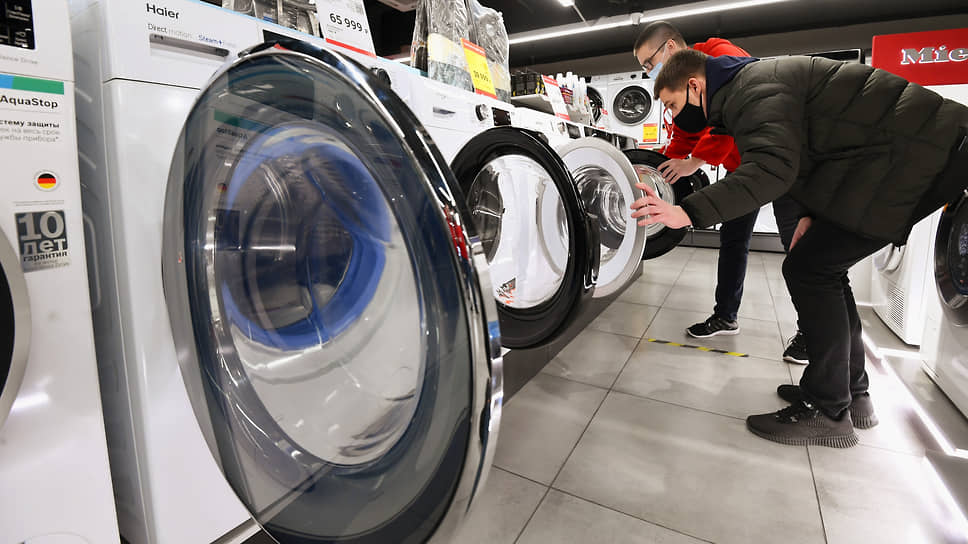Issue price – Newspaper Kommersant No. 214 (7415) dated 11/18/2022
[ad_1]
Official statements by Bosch, LG, Samsung, Electrolux and other brands about the termination of work in the Russian Federation launched a chain of events that seriously changed the home appliances market. The first news about the departure of brands caused a sharp jump in demand for their products, so after February there were abnormally high sales of large household appliances, which depleted warehouse stocks. Then came a recession, which was not helped even by the parallel imports that started working in the third quarter. Small companies that began to transport equipment from the UAE or Turkey could not saturate the market. The freed space on the shelves began to be occupied by Asian and Russian brands.
During the first half of the year, the volume of sales of domestic equipment increased by 19% compared to the same period last year. Only the Chinese grew faster – by 29%. At the same time, Russian equipment has not become better or cheaper; on the contrary, prices have increased. However, buyers give preference to it, including because of the availability of after-sales service.
A tangible increase in sales has been noted, for example, at the manufacturers of refrigerators Biryusa and Pozis. In the segment of built-in appliances, Russian brands Maunfeld, Krona, Weissgauff demonstrate positive dynamics. However, their positions in the long term still look vague. If a strong foreign brand appears in this segment, the share of Russian embedded equipment will most likely stop growing.
However, one of the main conditions for conquering the market of large household appliances in the country is the presence of local production. That is why Chinese and Turkish companies already have their own factories here or are preparing to acquire them. The former leaders of Bosch, Whirlpool, LG and other departed giants, on the contrary, are getting rid of assets or mothballing them.
However, don’t expect a quick sale. It is difficult to estimate the cost of refurbishing a mothballed plant. Each case is individual and depends on the severity of the modernization – somewhere it is enough to change the production technology, and somewhere you will have to change the entire infrastructure, which requires significant costs.
For example, the mothballed factories of Samsung and Bosch are still idle, as they are very specific, designed for their own unique components and technologies, so it will be quite difficult for new owners to launch the production of original equipment on their basis. But to build a plant from scratch that produces, say, half a million washing machines and refrigerators a year, also requires serious expenses – you will have to invest € 50-70 million. But there will be no problems with the supply of components: they are mainly produced in China, so the main thing is to arrange logistics.
As a result, if a year ago, Russian household appliance factories were not fully loaded, now they are reaching full capacity. And even this is not enough to fully compensate for the departure of foreign brands.
Therefore, in the future, investments in the development of local production will certainly increase. Support from the state, following the example of what happens in electronics, could speed up this process. Subsidizing domestic producers would help them increase production volumes; Russian brands will not be able to build new factories on their own. So, with the current development of the situation in the coming years, Chinese brands will probably lead in all major categories of large household appliances.
Chinese and Russian brands are built into the market of household appliances of the Russian Federation
Read more
[ad_2]
Source link






